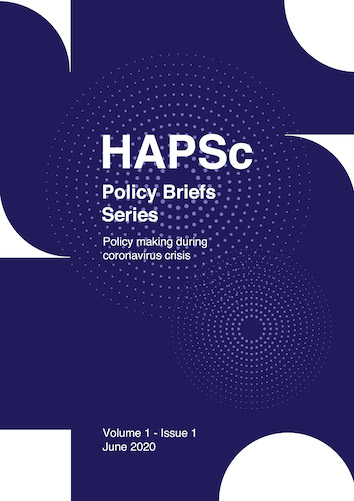Tourism in the post Covid-19 era: An opportunity for expansion of the tourism season; The case of Crete
Abstract
Tourism worldwide has been affected by Covid-19 and many tourism destinations have been hit hard. The effects of the virus on the tourism sector will be long-lasting and economic losses inevitable. Nonetheless, there is a strong positive correlation between tourism and economic growth. As a result of this, the tourism season expansion can, under specific circumstances, lead to greater economic growth. Global crises can help countries that effectively deal with them, to evolve and effectively expand their seasonality, along with specific measures taken by the local governments to restore tourism and even more to expand it (Beirman, 2003).
For Greece, and Crete in particular, that heavily depends on its tourism sector, the economic losses are expected to be devastating. However, based on the development of Covid-19, so far, Greece is presented with a unique opportunity to improve its comparative position and prolong the duration of its tourism season.
Crete is the ideal holiday destination to take advantage of the current situation, in order to prolong its season. Crete is an island with a very diverse landscape and a mild climate, all year round. The region of Crete, over the course of the past decade, has put significant effort in promoting its own brand and has already succeeded in extending the islands tourism season by at least one more month, with season starting mid-March and ending early November (Enterprise Greece, 2018). Moreover, in low season, there have been attempts by local Tour Operators and there has been a small but steady flow of Tourists, even in the extremely low season, between November and February. Of course, all initiatives taken by the locals, are important but are not sufficient. Coordinated support is needed by the government and the prefecture of Crete to boost the island and create a viable extent tourism season.Article Details
- How to Cite
-
Kyriakakis, A., & Tzirakis, D. (2020). Tourism in the post Covid-19 era: An opportunity for expansion of the tourism season; The case of Crete. HAPSc Policy Briefs Series, 1(1), 227–237. https://doi.org/10.12681/hapscpbs.24970
- Section
- Articles

This work is licensed under a Creative Commons Attribution 4.0 International License.
Authors retain copyright and grant the journal right of first publication with the work simultaneously licensed under a Creative Commons Attribution License that allows others to share the work with an acknowledgement of the work's authorship and initial publication in this journal.


